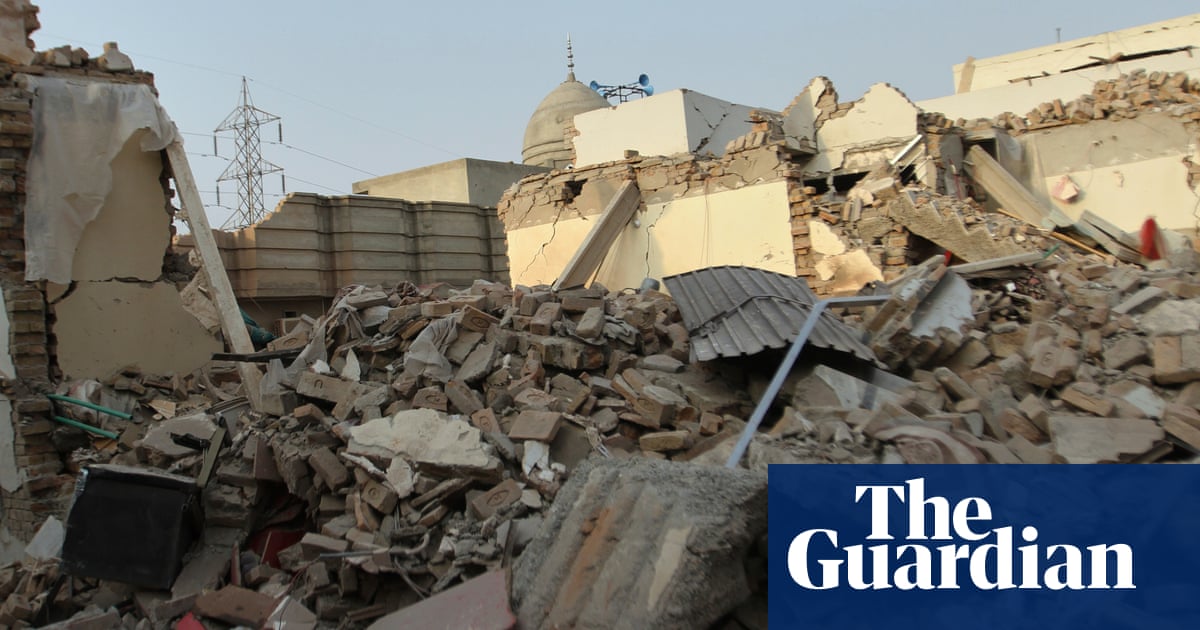Pakistan Authorizes Military Retaliation Against India Following Deadly Airstrikes










2025-05-07T16:08:00Z

On the heels of devastating missile strikes carried out by the Indian Air Force that resulted in the deaths of 31 people, Pakistan has given its military the green light to execute 'corresponding' retaliatory actions. The situation has escalated tensions between the two nuclear-armed neighbors, both of whom have a long history of conflict.
In a strongly worded statement, Pakistan accused India of 'igniting an inferno' within the region after the strikes targeted nine locations in Pakistan-administered Kashmir and the province of Punjab. The attacks occurred during the early hours of Wednesday, leading to significant civilian casualties, including children.
India has justified its actions as a direct response to a previous attack in Indian-administered Kashmir, wherein militants killed 25 Hindu tourists and their guide. India's government has long accused Pakistan of providing support to militant organizations, including the notorious groups Lashkar-e-Taiba and Jaish-e-Mohammed, which have been linked to many lethal terrorist incidents on Indian soil.
In an exclusive interview with the Guardian in Islamabad, Pakistan's Deputy Prime Minister and Foreign Minister Ishaq Dar expressed the country's stance, stating that Pakistan is prepared to go to 'any extent' to uphold its dignity. He emphasized that the military has the authority to respond with actions that are 'measured, proportionate, and responsible.' However, he declined to elaborate on specific timelines for potential retaliatory measures, noting that the powerful army chief, General Asim Munir, would lead discussions in collaboration with the coalition government.
Dar pointed out that Pakistan has previously exercised 'patience and maximum restraint' amidst ongoing accusations and military actions from India. He highlighted the economic ramifications of a full-scale war but underscored that the integrity and dignity of the nation surpass any monetary concerns.
He also voiced frustration over the international community's tepid response to the escalating conflict, lamenting that calls for assistance to conduct an independent investigation into the recent attacks in Kashmir have largely gone unaddressed. Historically, U.S. administrations have played a crucial role in mediating and de-escalating tensions between India and Pakistan. However, Dar noted that the Trump administration was less proactive in this regard.
'It is also the responsibility of the global community,' he stated, warning that the consequences of any conflict would not be confined to the South Asian region alone but would have ripple effects worldwide.
Following the airstrikes, India celebrated the operation as a significant victory, asserting that it successfully targeted terrorist sites. Indian Defence Minister Rajnath Singh claimed, 'We killed only those who killed our innocents,' while Home Affairs Minister Amit Shah reinforced the government's determination to respond decisively to any threats against India.
Pakistan, however, has rejected the characterization of the attacks as justified, calling them 'unprovoked and unjustified,' and maintained that there are no terrorist installations in the areas hit by India. This statement was echoed by Dar, who reiterated that no terrorist outfits operate in the targeted regions.
The airstrikes represent a historic escalation, marking the first time since the 1971 India-Pakistan war that Indian missiles have struck inside Punjab, a province critical for both its political and military significance. Casualties have been reported, but India has refrained from confirming the losses on their side.
In the Indian-Kashmir village of Wuyan, local resident Adnan Ahmad recounted a harrowing experience as he witnessed an aircraft crash nearby, leading to multiple explosions and a chaotic scene.
As the situation developed, intense gunfire erupted between Indian and Pakistani forces along the Line of Control, resulting in civilian casualties on both sides. Reports indicate that at least 12 civilians in Indian-administered Kashmir have died since the commencement of hostilities, while Pakistan reported five casualties from shelling.
In Poonch, a border area severely affected by the conflict, residents expressed their anguish and fear as they endure the consequences of the violence. Safeer Abdullah, a local, shared the harrowing experience of watching his relatives suffer from injuries inflicted by mortar fire.
In response to the escalating violence, thousands of residents on the Indian side of the border have been forced to evacuate to safer areas, living in constant fear under what they describe as a 'rain of artillery fire.' The humanitarian impact of this conflict is becoming increasingly dire, with destruction of homes, a Sikh temple, and agricultural fields reported.
International reactions to the crisis have been swift, with calls from the US, UK, China, Iran, and UAE urging for immediate de-escalation. British Prime Minister Keir Starmer stated that the UK is actively engaging with both countries to foster dialogue, promote calm, and ensure the protection of civilians caught in the crossfire.
 Malik Johnson
Malik Johnson
Source of the news: The Guardian